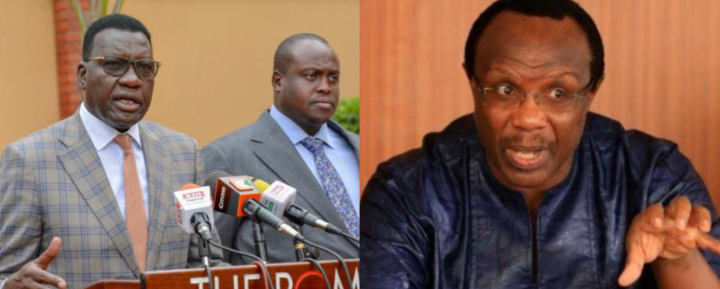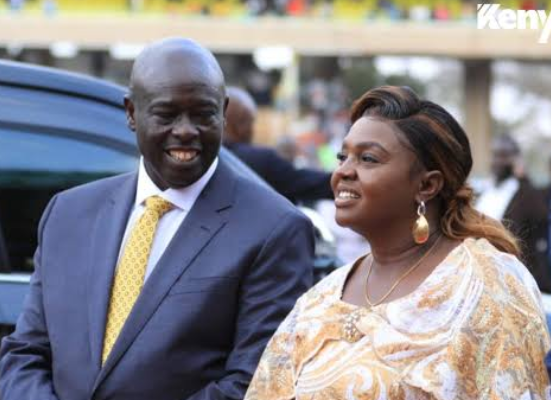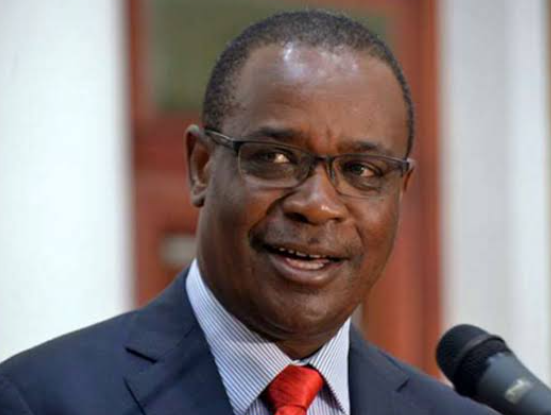Recent controversies surrounding the Energy and Petroleum Regulatory Authority (EPRA) have drawn public attention, as reports suggest that questionable deals backed by top officials including David Ndii and former Energy CS Chirchir are straining Kenya’s economy.
A video from October 2023 raised concerns, accusing individuals like David Ndii and Davis Chirchir of promoting deals that significantly burden the public.
EPRA’s mandate is to regulate Kenya’s energy sector, primarily by setting fuel prices, managing energy tariffs, and supporting sustainable energy development.
However, critics argue that the agency has shifted from its primary goals, instead prioritizing deals with independent power producers (IPPs) that favor private interests over public welfare.
EPRA’s pricing decisions had led to increase in fuel and energy costs, which reverberate across the economy, affecting transportation, agriculture, manufacturing, and household expenses.
One of the primary criticisms leveled against EPRA is its handling of power purchase agreements (PPAs).
These agreements often commit the government to buy electricity from IPPs at high, fixed rates, regardless of fluctuations in demand or alternative cheaper energy sources.
According to energy experts, such deals have created a financial sinkhole where the government and, by extension, taxpayers, incur high costs for unused electricity.
Kenya Power, the sole electricity distributor, often faces substantial losses due to these agreements, resulting in increased tariffs that are passed on to consumers.
This approach not only inflates operational costs across industries but also stymies economic growth.
Manufacturing, agriculture, and other sectors that rely heavily on electricity are forced to increase prices or cut jobs, shrinking their growth potential and limiting consumer purchasing power.
Rising energy costs feed into inflation, which disproportionately affects low- and middle-income households.
David Ndii, a noted economist, and Davis Chirchir, a former Energy Cabinet Secretary, have been accused of backing these deals within EPRA.
Ndii, previously a critic of opaque economic policies, now faces scrutiny for allegedly endorsing agreements that contradict his past advocacies for fiscal transparency.
His role as an economic advisor has drawn questions over whether his influence has facilitated EPRA’s controversial decisions on energy contracts.
Similarly, Chirchir’s tenure in the energy ministry is marked by accusations that he enabled policies favoring private interests. Critics suggest that Chirchir played a key role in approving deals that disproportionately benefit energy cartels at the public’s expense. Observers claim these alleged conflicts of interest have created an environment within EPRA where accountability and public welfare take a back seat to lucrative, revenue-generating deals for a few entities.Economic and Social ConsequencesThe financial burden resulting from EPRA’s controversial deals has triggered a ripple effect throughout Kenya’s economy. Rising fuel and electricity costs make basic goods and services more expensive, exacerbating inflation. This affects nearly every household, with consumers paying higher prices not only for utilities but also for essential commodities like food and transportation.Businesses, especially small and medium-sized enterprises (SMEs), bear a heavy load under these circumstances. Higher energy expenses reduce profitability and lead to difficult decisions, including price increases, layoffs, or even closures. This worsens unemployment and reduces overall productivity, weakening the economy’s growth potential. Moreover, increased power tariffs strain Kenya Power’s financial health, compelling the government to consider bailout measures, which ultimately divert public funds from other critical sectors like education, healthcare, and infrastructure.Public Response and Demand for TransparencyThe public’s growing discontent with EPRA’s management practices has led to calls for transparency and accountability. Civic groups and lawmakers have voiced concerns over EPRA’s lack of openness about the terms and conditions of its power purchase agreements. These deals are often shielded from public scrutiny, making it difficult to determine whether they genuinely serve the national interest. Observers are pushing for an audit of EPRA’s agreements with IPPs and a restructuring of the agency’s decision-making processes to align with the public’s welfare.Amid these concerns, the alleged involvement of influential figures like Ndii and Chirchir adds fuel to the fire. Kenyans are demanding answers, calling for the two officials to explain their roles in EPRA’s deals and, if necessary, to face accountability for any adverse economic consequences. Critics argue that failing to address these grievances may result in more economic hardships for the public and further diminish trust in regulatory institutions.Toward a Sustainable Energy PolicyReforming EPRA’s approach to power purchase agreements and energy pricing is crucial for Kenya’s economic stability. Transparency in EPRA’s operations, renegotiation of costly IPP deals, and regulatory reforms that prioritize affordable energy for consumers are essential steps forward. A sustainable energy policy would alleviate Kenya’s energy costs, foster economic growth, and restore public confidence in the agency’s commitment to its mission.Ultimately, Kenya’s energy sector should serve as a driver for economic growth and innovation, not as a drain on public resources. Without significant changes, the agency’s questionable deals and the role of powerful officials will continue to burden the economy, leaving ordinary Kenyans to bear the brunt of policies that benefit a select few.—This article brings to light the critical issues surrounding EPRA’s controversial deals, exploring the alleged influence of David Ndii and Davis Chirchir and emphasizing the urgent need for transparency and reform.













Leave feedback about this